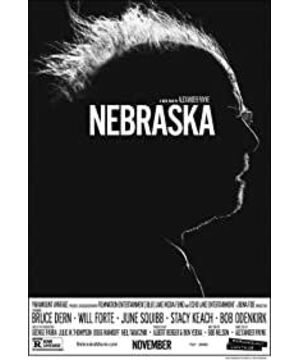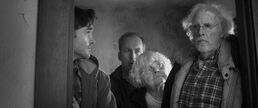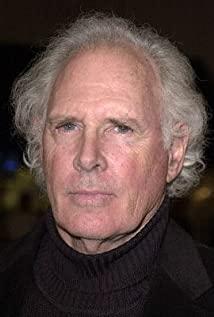Alexander Payne is good at telling unsatisfactory life, and uses some details and common experiences in life to point out the heart and mood of the disappointed person, his true and delicate, calm and succinct expression The style can always poke the hearts of moviegoers. This time, the film "Nebraska" directed by him tells a tragic and tragic life in black and white images.
If it is said that in "Life with a Glass of Wine", Payne was not so stingy to give the last straw to the frustrated, then this time, although he used a moment of warmth at the end of the film to let the old father drive the new truck in his hometown. The town seems to be taking a lap in the face, but when driving to the highway, the elderly father and son immediately changed seats. This scene is like Cinderella's twelve o'clock in the middle of the night. The warmth quickly dissipated, leaving only the empty and desolate distant picture.
Payne reportedly chose to shoot the film in black and white rather than color because he felt black and white looked "more archetypal and iconic." This presentation style and the slow rhythm of the film form a sense of retrospective immersion. Although the film does not use flashbacks to recount old events, it only touches the past with a coherent plot, refined dialogue and characters' emotions. memory.
The empty mirrors and panoramic shots in the film give people a feeling of deja vu, and they will suddenly suspect that the film is just Payne’s repetition of himself in terms of expression style. However, after careful inspection, you will find that the black and white scenery in the film is more chilling. The feeling of loneliness is very suitable for the temperament of the film, especially the reproduction of the dilapidated and depressing style of the town, which makes the picture full of symbolic subtext, and seems to show the indifference, selfishness and power of people living in this environment. It can be said that this time, Alexander Payne has a deeper understanding and revelation of life, family, affection, money and homeland. , quiet but not loud, full of melancholy and melancholy film".
In the film, the old father Woody is getting old, and finally wants to change the predicament of his life with an unreliable "winning", but he does not want to encounter the dilemma of his life. During this period, Woody's attitude of wanting to redeem the award was very firm, and he inadvertently made his younger son willing to accompany him for a walk, and the experience of passing through his hometown and small town reflected the reality of human affection. After the family suffered two reversals of the attitudes of relatives and friends, when Woody finally said why he wanted this bonus, in the end, only a "Prize Winner" hat was buckled on the old man's head, which was more like a poor quality sugar coating. cruelty.
In terms of performance, one comment said: "Bruce Dern, the excellent character actor who has played opposite Redford, John Wayne, and Jane Fonda, finally got his role worth waiting for a lifetime." The old father played by Dunn did give a very admirable performance. At the beginning, he was stubborn to reach the destination on foot. He thought that he could finally lift his eyebrows in the dark and depressed life. With such vigor, his father's series of bizarre actions have a pitiful and sad but self-respecting reason - a frustrated person who is over seventy years old and wants to win in the end, like a dying struggle. And Joan Squibb, who plays the mother, adds a lot to the humorous level and the extension of the imagination with his skillful performance.
The relationship between the parents in the film is very representative. The mother often complains badly, and the father turns a deaf ear. But, as Agatha Christie said, "Marriage is a very special thing - and I doubt that any outsider - even their children - has the right to judge what's right and wrong. ."
After the old father struggled with fate unconvinced, the family's life may be the same, or it may be worse, no matter what, the days will pass by the same, without a trace of stagnation and pity.
(magazine appointment)
View more about Nebraska reviews











